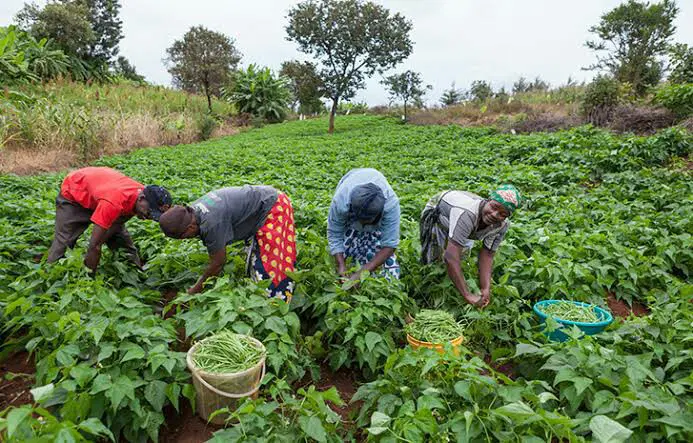The federal government has reaffirmed its commitment to enhancing cluster farming as a key strategy for improving food security in Nigeria.
During a visit to cluster farms in the Bwari area council, Federal Capital Territory (FCT) yesterday, in activities to mark the 2024 World Food Day, minister of state for agriculture and food security, Sabi Abdullahi, stressed the importance of supporting smallholder farmers to expand agricultural productivity.
The minister emphasised the significance of cluster farming, where neighbouring farm groups work collectively to maximise production and share resources.
The minister lauded the efforts of the farmers, noting that crops such as rice, cowpea, and sorghum are thriving despite challenges such as urban encroachment and security concerns.
Abdullahi also addressed food prices and insecurity, acknowledging the nation’s ongoing food production challenges but pointing to improvements in certain areas.
He explained that under President Bola Tinubu’s “Renewed Hope Agenda,” the federal government’s renewed strategy aims to boost agricultural output while addressing food access and affordability.
He further outlined government initiatives to encourage year-round farming through dry season irrigation and youth engagement in agriculture, such as the Young Farmers Club initiative in schools.
Additionally, the minister assured farmers that mechanisation equipment would soon be available to ease their work, especially in dry season farming, to enhance food availability.
He said, “We have been developing clusters, we need to see how these clusters work, we’ve been dealing with farmers, and we need to see the right methods in the field where they are operating.
“We aim to increase food production, and one of the ways to do that is by supporting cluster farms like these. They represent the renewed hope agenda of President Tinubu, which is focused on ensuring no Nigerian goes to bed hungry”.
Assistant country representative of the Food and Agriculture Organisation (FAO), Salisu Mohammed, emphasised the importance of building climate resilience and improving agricultural productivity as critical steps toward reversing the country’s food insecurity trends.










